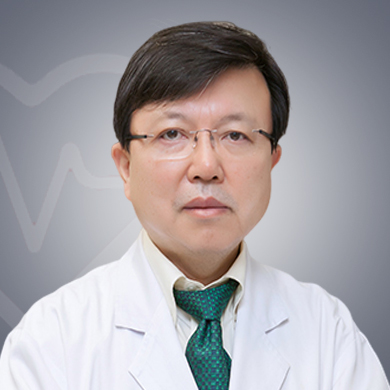
28 Years of experience
Speaks: English
Neurosurgeons are trained to treat people suffering aneurysms, blocked arteries, trauma to the brain and spine, birth defects, chronic low-back pain, brain and spinal cord cancer, and peripheral nerve problems. Neurosurgeons also do surgeries for carpal tunnel syndrome, spinal surgery, and brain tumor removal surgery. Here is a list of some of the conditions Dr. Kim Kwang Kuk treats:
Some of the signs and symptoms that neurological disorders can produce are listed below. These symptoms should be discussed with a neurosurgeon for further medical investigation.
The above symptoms appear mainly due to conditions that can adversely affect the nervous system. The symptoms can vary from person to person because the nervous system regulates different body functions. Symptoms can include all forms of pain.
If you wish to see Dr Kim Kwang Kuk in his clinic/hospital, you can visit him between 11 am and 5 pm (Monday to Saturday). The doctor doesn’t work on Sunday. Call the doctor or his attendant to confirm his/her availability because the doctor may not be available due to some personal reasons or any emergencies.
With several years of experience and deep knowledge, Dr Kim Kwang Kuk has successfully performed a wide range of surgeries. Some of the popular procedures performed by the specialists include::
Dr. Kim Kwang Kuk specializes in the surgical treatment of neurological disorders and has operated on a large number of diseases. The neurosurgeon has developed an excellent team of physicians to handle even the most complex cases with minimal invasion and the highest safety. The team includes neurosurgeons and neuroradiologists who are regional experts in the surgical treatment of neurological diseases.

Share Your Experience about Dr. Kim Kwang Kuk

Neurosurgeons, also known as brain surgeons, are doctors who specialize in the surgical treatment of conditions that affect the nervous system, brain, and spine. Neurosurgeons first have the training which makes them eligible to practise as a doctor. After this, they complete specialist training in neurosurgery. Neurosurgeons mostly see patients in their own clinics and public and private hospitals. Sometimes, they have to work with other specialists and medical experts to seek their opinion on diagnosis and surgery techniques. They also evaluate the diagnostic tests to know the exact underlying conditions and accordingly proceed with the treatment.
You have to undergo one or more diagnostic tests before and during a consultation with a neurosurgeon. The result of the tests will help the doctor determine the root cause of the disease and plan the treatment accordingly. A neurological examination is the assessment of motor responses and sensory neuron and includes the following:
For the diagnosis of neurological conditions, you need to have one or more of the following tests::
Here are some of the top signs that suggest you should consult a neurosurgeon:
Neurosurgeons perform complicated operations on the brain. Also, they deal with the whole nervous system and treat all the body parts that are affected by nerve issues. Typically, a neurosurgeon will diagnose patients' symptoms and come up with minimally invasive treatment plans.